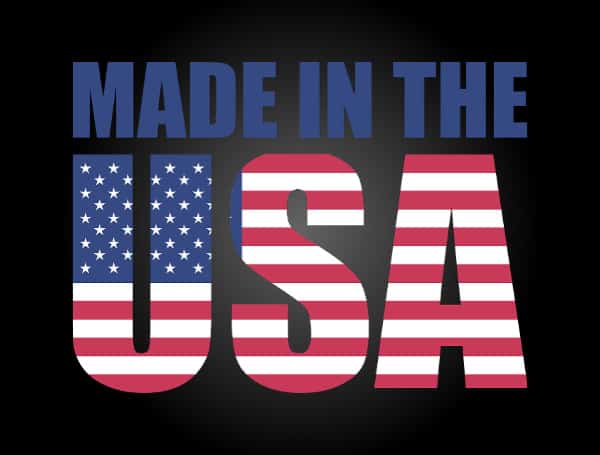CLEARWATER, FL – The FTC has sued Lithionics Battery LLC of Clearwater because of alleged proof “all of its battery and battery module products incorporate imported lithium-ion cells, and all battery management systems incorporate significant imported components, according to an FTC press release.
The Federal Trade Commission’s new “MUSA Labeling Rule” became effective in August 2021 on peel-off “Made in USA” or “Made in America” labels found on foreign-made, or predominantly foreign-made products.
The FTC expects the use of “MUSA” labels to represent products 100 percent made or “virtually all made” in the U.S.
The FTC article continues that since 2018, “Lithionics has falsely labeled its battery products with an American flag image surrounded by the words, “Made in U.S.A.,” often accompanied by the statement, “Proudly Designed and Built in USA,” when these products are primarily made overseas.”
The FTC lawsuit declares the defendant company is selling products made of “significant imported products,” although it does not disclose the actual percentage of foreign materials or components that comprise Lithionics’ product lines. It also does not state who designed the products.
However, it indicates that, “At all times relevant to this complaint Defendant (Lithionics CEO) Tartaglia was aware that Lithionics products incorporated significant imported content. Indeed, as recently as April 2021, importation documents listed Defendant Tartaglia as the consignee and point of contact to receive Lithionics’ shipments of lithium energy storage batteries arriving from Hong Kong.”
Steve Tartaglia, 63, of Safety Harbor, is the Founder, Owner, and General Manager of Lithionics Battery. He opened the company in 2010, selling batteries, battery modules, and battery management systems for recreational vehicles, low-speed electric vehicles, amusement park rides, and other equipment. It is located at 1770 Calumet Street.
The FTC seeks a permanent injunction, civil penalties, notices to consumers, and discontinuation of all forms of alleged bogus claims by Lithionics Battery.
However, in a 3-2 vote last year, FTC dissenters expressed concerns the new FTC rule exceeded its rulemaking authority granted by Congress.
FTC Commissioner Christine S. Wilson lambasted the rule as prone to the scorn of Congress and the courts – as in the past – whenever the FTC decides to hop-scotch beyond its Congressionally defined boundaries. Wilson wrote that the FTC had no jurisdiction over any form of false advertising, except the sub-category of labeling. She cited Congressional laws which already address other categories of false advertising without FTC involvement. This current case may or may not exemplify her concerns.
Wilson also did not support compensation for consumers when no proof of actual harm exists.
In this case, no example of Lithionics consumer harm is yet presented by the FTC, although it states, “Consumers are suffering, have suffered, and will continue to suffer substantial injury as a result of Defendant’s violations…” It is unknown if the FTC will eventually request consumer monetary relief or provide proof of harm.
Referencing the legal case of AMG v. FTC, Wilson indicated the Supreme Court shot down the FTC’s ability to seek equitable monetary relief for consumers under the misuse of the FTC Act, Section 13(b). The only legal path to securing compensation for consumers is under Section 19, which requires a first-step administrative proceeding and other actions before invoking the authority to collect consumer compensation.
The National Law Review reported on May 1 that the April 12 Lithionics Battery legal case is the FTC’s first action under the new MUSA Labeling Rule.
The Free Press reached out for comment from Defendant Steve Tartaglia, but there was no response. His attorney, in this case, is unknown.
Visit Tampafp.com for Politics, Tampa Area Local News, Sports, and National Headlines. Support journalism by clicking here to our GiveSendGo or sign up for our free newsletter by clicking here.
Android Users, Click Here To Download The Free Press App And Never Miss A Story. Follow Us On Facebook Here Or Twitter Here.

